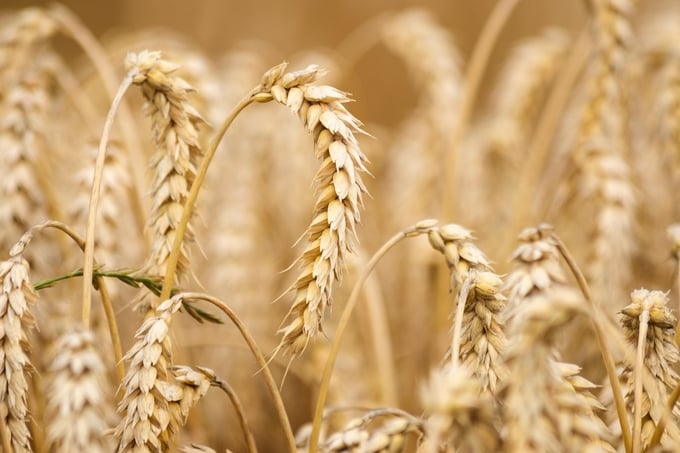November 28, 2025 | 04:57 GMT +7
November 28, 2025 | 04:57 GMT +7
Hotline: 0913.378.918
November 28, 2025 | 04:57 GMT +7
Hotline: 0913.378.918

Wheat on a field before the harvest. Credit: Leibniz-Zentrum für Agrarlandschaftsforschung (ZALF) e.V
In a recent article published in the journal Nature Plants, the authors used simulation experiments to show that nitrogen fertilization in wheat cultivation will have to increase up to fourfold in the coming years to exploit the yield potential of the varieties and feed the growing world population. However, this increased amount of nitrogen would have a negative impact on ecosystems in the agricultural landscape. Researchers from the Leibniz Centre for Agricultural Landscape Research (ZALF) were involved in the study.
The authors of the study advocate the development of strategies to improve nitrogen uptake in wheat crops. In wheat, only 48% of the fertilizer applied is taken up by the crop. The rest of the applied nitrogen, a large proportion, leaches into the soil or is emitted into the air. This excess nitrogen fertilization pollutes water quality, leads to high greenhouse gas emissions and is a major driver of biodiversity loss.
In this study, simulation models were used for the highest-yielding wheat varieties to model potential yield increases and associated nitrogen requirements. Different climate change scenarios were applied to the world's major wheat growing regions. The study was co-authored by Prof. Frank Ewert and Prof. Heidi Webber. Other ZALF scientists contributed models and calculations to the study. These include Prof. Kurt-Christian Kersebaum, Prof. Claas Nendel, Dr. Amit Kumar Srivastava and Dr. Tommaso Stella.
"Our results show that we need to focus primarily on ensuring that nitrogen is available to plants in the soil and can be efficiently absorbed by the plants. This has a major impact on the yield potential of wheat, but also on the environment. In view of the negative effects of excess nitrogen on the climate and the environment, we cannot increase fertilizer application any further, but must think about alternatives," says Prof. Dr. Frank Ewert, Scientific Director at ZALF and co-author of the study.
Among the solutions discussed by the authors is the breeding of wheat varieties that better absorb and utilize nitrogen. Other farming practices are also needed, such as combining wheat with legumes that can produce nitrogen from the air with the help of nodule bacteria. However, none of these solutions alone will enable the necessary intensification of wheat production. What is needed is a sensible integration of agronomic, genetic and socio-economic factors.
Wheat is the world's most important crop. As the world's population grows and economic growth increases, so too will the demand for wheat. At the same time, the world's arable land is limited. In addition, agriculture must reduce its negative impact on the climate and the environment if it is to continue to feed the world. Climate change adds to these challenges. Sustainable solutions require consideration of the entire agri-food system.
(Phys)

(VAN) A new study reveals how the simultaneous effects of ocean acidification, salinity and loss of oxygen are making the world more fragile.

(VAN) Hopes are growing that the creation of the first 3D turkey gut model could be a turning point in the battle against the virulent blackhead disease.

(VAN) Tyson, America’s biggest meat supplier, plans to shutter one of its largest beef processing plants as the industry continues to struggle with low cattle supplies and political pressure from Washington.

(VAN) New FAO study shows how digital solutions are empowering farmers and fishers to prevent losses and build resilient agrifood systems.

(VAN) Brazil's COP30 presidency pushed through a compromise climate deal on Saturday that would boost finance for poor nations coping with global warming but that omitted any mention of the fossil fuels driving it.

(VAN) Poultry farmers in the UK have been warned that they could face one of the worst winters yet for bird flu.

(VAN) Prices of main-crop paddy have risen sharply, with jasmine rice hitting 16,100 baht per tonne — the highest level in years.